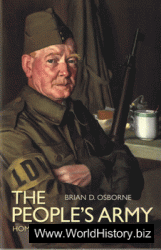Richard Rufus of Cornwall was a scholastic philosopher-theologian who flourished between 1231 and 1256. He lectured at Paris on the newly rediscovered Aristotelian libri naturales, most importantly on Aristotle’s Metaphysics. Subsequently, as a Franciscan he lectured on theology at Oxford and at Paris. At the start of his career he was most influenced by Averroes, but within a few years he wrote a treatise disputing many of Averroes’ views, particularly on the divine intellect and on individuation. In theology, Rufus’ dispute with Richard Fishacre set the stage for generations of controversy between Franciscans and Dominicans on the nature of the will. Nonetheless, his works were unremarked and misattributed for centuries after 1350. But though the rediscovery of his works did not begin until 1926, Rufus’ influence on Roger Bacon, Albert the Great, and John Duns Scotus has already been documented.
Richard Rufus of Cornwall was a scholastic philosopher-theologian who flourished between 1231 and 1256. In 1238 he joined the Franciscan Order at Paris, and most of the information we have about him comes from Franciscan sources: Adam Marsh, Thomas Eccleston, and Roger Bacon. Marsh tells us that Rufus was brilliant and beloved by all. Eccleston lists him as the fifth Franciscan lector in theology at Oxford. According to Eccleston, Rufus was a master famous at Oxford and at Paris who brought acclaim to the Franciscan Order when he joined the Order at Paris. Roger Bacon agrees that Rufus was famous, but claims that this was only with the foolish multitude; the wise considered him insane.
Like Roger Bacon, Rufus lectured at Paris on the newly introduced Hhri naturales before becoming a Franciscan: Rufus in the 1230s and Bacon in the 1240s. Not surprisingly Bacon rejected some of the views Rufus stated, including his views about the logic of empty classes and real names, about divine ideas and the agent intellect, and about projectile motion and place.
Rufus’ earliest known work is a disputed question on the divine intellect. His best-known philosophical work is the last lectures he gave as a secular author, his Scriptum in metaphysicam Aristotelis, which was deeply influenced by Robert Grosseteste. Rufus also lectured on Aristotle’s Physics, De anima, and De generatione et corruptione, though the attribution of these three commentaries to Rufus has recently been contested. In these lectures and in his first metaphysics commentary, Rufus was most strongly influenced by Averroes whose views he generally adopted. Possibly on account of Grosseteste, late in his secular career Rufus began to move away from Averroes. His Contra Averroem was designed to refute Averroes’ views on divine knowledge and on individuation.
After 1238, Rufus lectured on Peter Lombard’s Sentences at Oxford around 1250 and subsequently at Paris. As noted by Franz Pelster, who discovered this work in 1926, the Lectura Oxoniensis, is not only the earliest surviving Sentences commentary by an Oxford bachelor of theology, but an important work that influenced John Duns Scotus.
Despite its importance for the Franciscan theological tradition, Rufus claims here that commenting on Lombard is not doing theology, since Scripture is by itself the complete and perfect theology and requires no summary. His lectures are rather an attempt to elucidate some obscure statements subordinate to theology. This perspective reflects the influence of Robert Grosseteste. Other major influences on this work are Augustine, Anselm of Canterbury, Bernard of Clairvaux, Hugh of St. Victor, and Alexander of Hales.
Among the more interesting questions Rufus addresses is the nature of the human will, in which his reply to Richard Fishacre anticipates the long dispute between Franciscans and Dominicans about whether the will should be seen as primarily a volitional or an intellectual faculty. Rufus seeks to minimize philosophical excurses, in part by referencing his earlier philosophical works, such as the discussion of individuation from his Contra Averroem.
Prominently referenced in the prologue to the Oxford lectures on Lombard is Rufus’ brief epistemological treatise, a work entitled Speculum animae in the manuscript that preserves it. The Speculum is Rufus’ exposition of Aristotle’s claim in On the Soul (3.8) that the ‘‘the soul is in some manner all things.’’ In it Rufus distinguishes between the proximate and remote objects of apprehension. The remote objects are nature forms properly classified in the Aristotelian categories, while the proximate objects of apprehension are species forms not included in the Aristotelian categories. It is as it is actualized by species forms that the soul is all things according to Rufus. Thus Rufus does not consider Averroes’ version of the barrenness claim - namely, that the soul cannot receive a form it already has - a problem for self-understanding, since the form understood differs ontologically from its nature form.
Rufus’ last surviving work is his lectures on Peter Lombard’s Sentences delivered at Paris. The basis for these lectures was the lectures given shortly before by Bonaventure. Typically Rufus’ own contribution is briefer than his presentation of Bonaventure’s views. However, Rufus’ critical comments on Bonaventure were incisive and exercised an independent influence - on Richard Kilwardby, for example.
As Bacon noted, Rufus was famous not only in his own lifetime but for about 50 years after the presumed date of his death in about 1260. Albert the Great cites and adopts and some of his views, as does John Duns Scotus, whose proof for God’s existence and whose theories of individuation were anticipated by Rufus.
However after 1350, Rufus was no longer cited, and his works were not rediscovered until the twentieth century. They exercised only an indirect influence on later scholasticism not just because their discussions were brief and not fully adumbrated but also because Rufus’ commitment to intellectual humility led him not to name his own works even when quoting from them. Nonetheless, Rufus is an important figure in the history of scholasticism both because of his brilliant arguments and because he played an important role in setting the agenda for later scholasticism.
See also: > Albert the Great > Anselm of Canterbury
> Aristotelianism in the Greek, Latin, Syriac, Arabic, and Hebrew Traditions > Augustine > Bernard of Clairveaux
> Bonaventure > Epistemology > Hugh of St. Victor
> Ibn Rushd, Muhammad ibn Ahmad al-Hafid (Averroes)
> John Duns Scotus > Metaphysics > Natural Philosophy
> Peter Lombard > Richard Fishacre > Robert Grosseteste > Robert Kilwardby > Roger Bacon > Sense Perception, Theories of > Voluntarism and Intellectualism




 World History
World History









